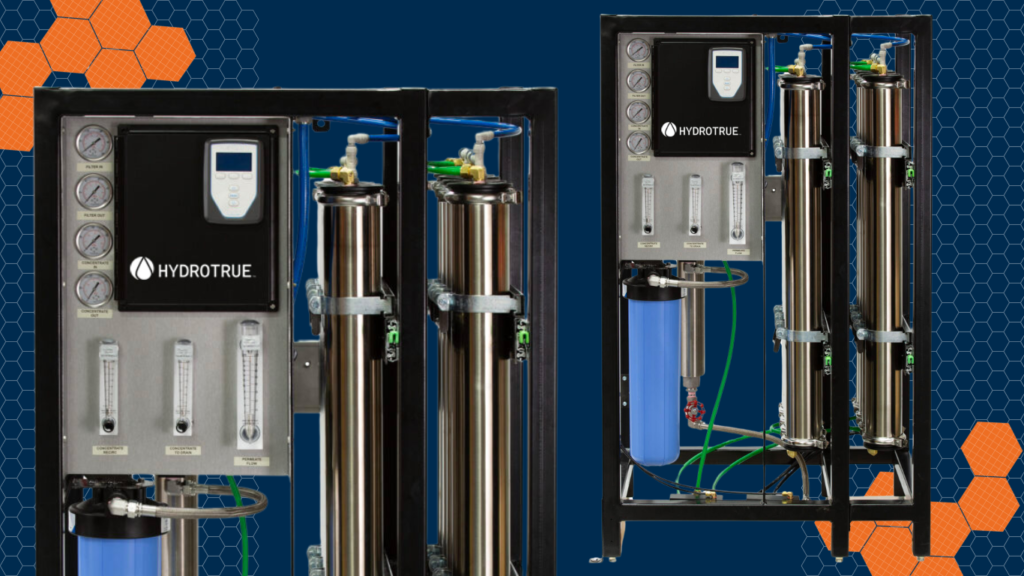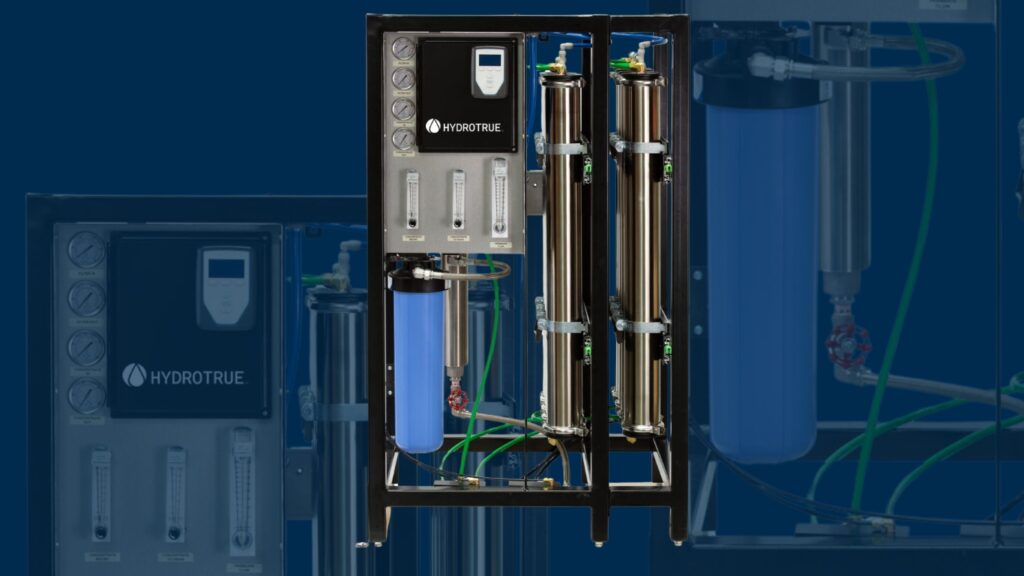
Commercial water softeners play a vital role in ensuring businesses access high-quality, softened water. However, like any piece of equipment, they can encounter performance issues.
Understanding how to troubleshoot these problems can save time, reduce downtime, and maintain operational efficiency. Here are some typical issues you might encounter with commercial water softeners and how to address them.
- Inadequate softening performance: One of the most common issues is that the water softener is not adequately softening the water. This can be due to several reasons:
- Resin bed problems: The resin bed inside the softener tank can become fouled or exhausted. Regular resin bed cleaning or replacement is essential. Signs of a fouled resin bed include decreased efficiency and increased hardness in the output water.
- Salt bridges: A salt bridge can form in the brine tank, preventing proper regeneration. To fix this, carefully break up the salt bridge and ensure the salt level is adequate for regeneration cycles. Read more about salt bridges here.
- Improper regeneration: Ensure the regeneration cycle is set correctly. The cycle should match the water usage and hardness levels. Incorrect settings can lead to insufficient regeneration and hard water leakage.
- Low water pressure: Water pressure issues can significantly affect the performance of a water softener.
- Clogged filters: Sediment can clog pre-filters, reducing water flow. Check and replace these filters regularly to maintain optimal pressure.
- Resin bed blockage: Over time, the resin bed can become clogged with iron, manganese, or sediment. Regular resin bed cleaning and occasional backwashing can alleviate this issue.
- Valve issues: The control valve may become clogged or malfunction. Regularly inspecting and cleaning the valve can help maintain proper water flow and pressure.
- Excessive water usage: If the water softener is using more water than expected, it could be due to:
- Frequent regeneration: Check the settings to ensure the regeneration cycle is not occurring too frequently. Adjusting the cycle based on actual water usage and hardness can optimize water consumption.
- Leaking valves: Leaks in the control valve or other parts of the system can lead to excessive water usage. Regular inspections and prompt repairs of leaks are crucial.
- Bypass valve issues: Ensure the bypass valve is not partially open, which can lead to unsoftened water mixing with softened water, causing the system to regenerate more frequently.
- Salt consumption issues: Excessive or insufficient salt consumption can indicate problems with the water softener.
- Salt bridges: As mentioned earlier, salt bridges can prevent proper brine formation, leading to regeneration issues. Regularly check the brine tank for salt bridges and break them up as needed.
- Incorrect salt settings: Ensure the system’s salt dosage settings are appropriate for the water hardness and usage levels. Adjustments may be necessary to optimize performance.
- Brine line blockage: Blockages in the brine line can prevent the proper flow of brine during regeneration. Regularly inspect and clean the brine line to ensure it is free of obstructions.
- Electronic control issues: Modern water softeners rely on electronic controls that can sometimes malfunction.
- Power supply problems: Ensure the unit is receiving a consistent power supply. Check the power cord, plug, and outlet for any issues.
- Programming errors: Incorrect programming can lead to performance issues. Double-check the settings and reprogram if necessary.
- Component failures: Electronic components such as timers and control boards can fail. If suspected, these components should be tested and replaced as needed.
- Iron and manganese fouling: Iron and manganese can foul the resin bed, reducing the efficiency of the water softener.
- Iron removal: Install an iron filter if high iron levels are present in the water supply. Regularly use resin cleaner specifically designed for iron removal.
- Manganese management: Similar to iron, manganese requires specific treatment. Ensure the water softener is designed to handle manganese levels in the water supply.
Remember to maintain your commercial water softener to ensure optimal performance and longevity. Troubleshooting commercial water softeners requires a systematic approach, an understanding of the common issues, and knowledge of how to address them.
Regular maintenance, proper settings, and timely interventions can ensure your water softener operates efficiently and consistently provides high-quality softened water. By staying proactive and vigilant, businesses can avoid costly downtime and ensure smooth operations. For more detailed assistance, consider consulting with a professional water treatment specialist.

Hydrotrue Water Treatment Systems
Hydrotrue provides customized water treatment services for various industries. Our team of experts delivers top-notch solutions from maintenance to emergency response. We prioritize customer satisfaction and offer innovative solutions to address your specific challenges.
Water Treatment Systems and Services You Can Count On.

Hydrotrue provides customized water treatment services for various industries. Our team of experts delivers top-notch solutions from maintenance to emergency response. We prioritize customer satisfaction and offer innovative solutions to address your specific challenges.
